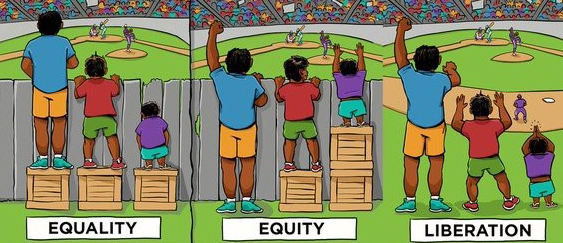-

OUR COMMITMENT
- Celebrating and promoting diversity, equity, and inclusion
- Enriching the educational experience for our students, staff, and community
- Continuous personal and professional learning in order to acknowledge the lasting impacts of historical inequities
- Disrupting and dismantling systemic barriers that perpetuate inequality
- Supporting an inclusive community where each person is seen, heard, and valued
OUR WORK
- African American Student Initiative (AASI)
- Eliminating Racism and Claiming/Celebrating Equality (ERACCE) Training
- Beyond Equity (MASA)
- Dr. Erin Winkler presented district-wide How Children Understand Race and How Adults Can Help
- Dr. Anthony Muhammad presented district-wide Overcoming the Achievement Gap Trap

-
DIVERSITY, EQUITY, AND INCLUSION
Mattawan Consolidated School is creating positive change through our commitment to diversity, equity and inclusion. A district Diversity, Equity, and Inclusion (DEI) team was created; comprised of four DEI team members per building.
Equality means that the same freedoms are held by all people, regardless of their individual or group identities.
Equity is the set of conditions that allows each person, regardless of societal or cultural factors, to reach their full potential. Equity is different from equality, which treats everyone the same despite disparate circumstances and outcomes and can actually further marginalize people.
Liberation removes the disadvantages experienced by particular groups within society.
Diversity refers to the variety of identities, backgrounds and experiences that make up a group of people. In the context of the Social Justice Standards, Diversity is a domain that includes helping students explore and celebrate the differences within their communities.
Justice is achieved when people have equal rights; it is a combination of fairness and opportunity. The Justice domain of the Social Justice Standards emphasizes students’ ability to recognize and respond to injustice and unfairness at the individual, institutional and systemic levels.
Cultural competency refers to the ability to work effectively and sensitively across cultural contexts. According to Gloria Ladson-Billings, educators can exhibit cultural competency when they understand the role of culture in schooling, initiate learning about students’ cultures and communities, use students’ cultures as foundations for learning, and help students understand their full identities.

